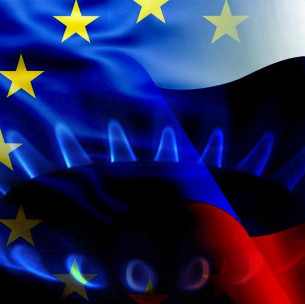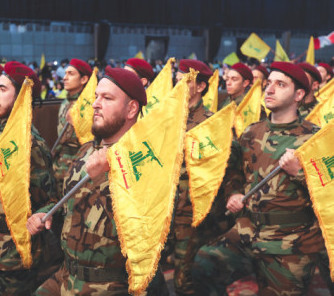- Press review: US lets Kiev use anti-personnel mines and Iran may halt uranium enrichment
- Press review: Uranium costs soar as Moscow updates nuclear doctrine and US OKs attacks
- Press review: Russian air defenses can down Western missiles as EU conducts live exercise
- G20 leaders adopt Rio de Janeiro Summit Declaration
One can hardly suspect the United Arab Emirates and Bahrain of loving the Islamic Republic. Lured by Washington's mantras about the "Iranian threat," they entered into agreements to establish diplomatic relations with Israel. The next in turn is Sudan. Saudi Arabia is suffering huge pressure either.
But the appetites of Washington and Tel Aviv are not limited to this. It seems that the one to be "verified" now is Iraq, where Iran has a huge influence and whom it deems as its defense doctrine's "distant approaches".
The Iranian media reported that "overture" is in full swing already. According to the Mehr news agency, an Israeli delegation with American passports has recently visited Baghdad, Secretary General of the Iraqi Shiite al-Nujaba movement Hujjat al-Islam Akram al-Kaabi said in Tehran in the last days of October. "When some members of the Zionist regime security services arrive at the Baghdad International Airport with Western passports, move freely around the country and hold meetings, this is a clear threat to Iraq, Iran, the region and people of the Muslim faith in general," the Iraqi politician said.
Сonspicuous is the fact that information about the visit of Israeli representatives to Baghdad appeared two months after Iraqi Prime Minister Mustafa al- Kadhimi, the former head of the country's national intelligence service, made a successful trip to Washington, where he was given a warm reception by US President Donald Trump.
Nujaba movement leader al-Kaabi has immediately arrived in Tehran, apparently for consultations on Israel's intentions. In the Iranian capital, he met with Ali Akbar Velayati, the Iranian Supreme leader's senior adviser in international affairs.
During the talks, al-Kaabi has stressed that amid the ongoing US election campaign, Washington is putting pressure on the governments of regional states to coerce them into a compromise with Tel Aviv. "This humiliating and anti-Islamic wave reached Iraq in a way that some bribed politicians, as well as those associated with the Islamic State (a terrorist group banned in Russia), raised the question of normalizing relations between Baghdad and Tel Aviv and even created a virtual Israeli Embassy."
In this regard, the Nujaba leader said: "The Iraqi Islamic Resistance movement will oppose the policy to smooth relations with the Zionist regime." He also stressed that his organization will proceed with assisting and supporting Palestine, with the goal of liberating Jerusalem remaining unchanged.
The issue of Israel's attempts to establish relations with Baghdad was also discussed at a meeting between al-Kaabi and another prominent Iranian politician Mohsen Rezaee, the Secretary of the influential Expediency Discernment Council. The level of al-Kaabi's reception points to Iran's serious concern about the Israeli penetration into the neighboring country. In the course of talks, the Iranian side expressed its firm determination to make sure of preventing the rapprochement between Baghdad and Tel Aviv. In Iraq, the United States will fail to repeat projects to normalize relations with Israel as was the case with the UAE and Bahrain, Rezaee said.
And Tehran has created particularly serious tools for its influence in Iraq. The same Nujaba movement with its 10,000 fighters under arms has opened a mission in Iran, has a deep history of cooperation with the Iranian elite military unit of the Islamic Revolutionary Guard Corps (IRGC), and, according to some Western media, follows specific directions by Iran's Supreme Leader Ayatollah Ali Khamenei.
If Israel does have serious plans to establish diplomatic relations with Iraq, its representatives will receive a very uncordial reception with pro-Iranian organizations that, at one with Tehran, consider the existence of an Israeli state illegal.
Thus, Nujab Deputy Secretary General Nasser al-Shammari has once again publicly vowed that his organization will fight the United States until the occupation ends and the Israeli regime is destroyed.
Earlier in September, Ammar al-Hakim, one of the Shiite and political leaders close to Iran, avowed the impossibility of establishing relations with Israel. At a meeting with the country's political elite in Baghdad, he stressed that "Iraq will never normalize its relations with Israeli occupying regime and that the agenda of State of Palestine will prevail."
Al-Hakim is a highly powerful player, being head of the Iraqi National Wisdom Movement party and leader of the National Iraqi Alliance parliamentary Shiite coalition, as well as President of the Islamic Supreme Council of Iraq. He comes from a prominent Hakim clan in the Shia holy city of Najaf, where Iraqi and Iranian theological schools are intertwined. Al-Hakim was close to Iranian General Qasem Soleimani, commander of the IRGC's al-Quds special forces, whom the Americans killed at the Baghdad International Airport earlier this year.
Pro-Iranian organizations will also obviously not forgive Tel Aviv for the summer airstrikes against the al-Hashd al-Shaabi militia bases. Following a series of explosions at militia-owned ammunition depots, Israel used IAI Harop drones to strike the headquarters and an al-Hashd al-Shaabi unit convoy next to the border with Syria.
The raids looked all the more cynical because of al-Hashd al- Shaabi militia's prominent role in destroying the Islamic State.
Striking the forces Iran relies on in Iraq is actually a blow to the Islamic Republic itself. It bears reminding that the militia mainly consists of Shiite military-political organizations directly supported by the Islamic Republic and trained by its military specialists. Moreover, the al-Hashd al-Shaabi militia was established through the agency of the Islamic Revolutionary Guard Corps (IRGC), in its image and semblance. Just like the IRGC, al-Hashd al-Shaabi has become a "forge of political staff". Today, many militia leaders are influential politicians, members of parliament, which has a Shia majority, by the way.
Given the strength and influence of pro-Iranian organizations in Iraq, established diplomatic relations between Baghdad and Israel would entail a further split in the Arab country, which maintains unity by the skin of its teeth. The impact of Iraqi weakening can be easily anticipated – it can once again turn into a territory of war with Islamist groups, whose gangs are yet to be completely annihilated both in Iraq and Syria, and whose cells are regularly destroyed in Russia.
In general, Israel's rapprochement with a number of Gulf countries has already become a factor of profound cleavages in the Arab and Islamic world. Tel Aviv's attempts to penetrate territories Iran considers its "defense line" may result in all the more graver destabilization in this entire region, which appeared not so far away from our own country.









